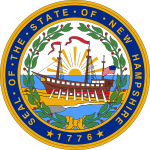
Warren Bruce Rudman was an American attorney and Republican politician who served as United States Senator from New Hampshire between 1980 and 1993. He was known as a moderate centrist, to such an extent that President Clinton approached him in 1994 about replacing departing Treasury Secretary Lloyd Bentsen in Clinton's cabinet, an offer that Rudman declined.

The 1986 United States Senate elections were elections for the United States Senate. Held on November 4, in the middle of Ronald Reagan's second presidential term, the 34 seats of Class 3 were contested in regular elections. The Republicans had to defend an unusually large number of freshman Senate incumbents who had been elected on President Ronald Reagan's coattails in 1980. Democrats won a net of eight seats, defeating seven freshman incumbents, picking up two Republican-held open seats, and regaining control of the Senate for the first time since January 1981. This remains the most recent midterm election cycle in which the sitting president's party suffered net losses while still flipping a Senate seat.

The 1986 United States Senate election in Alabama took place on November 4, 1986 alongside other elections to the United States Senate in other states as well as elections to the United States House of Representatives and various state and local elections. Incumbent Republican U.S. Senator Jeremiah Denton ran for a second term, but was narrowly defeated by Democratic U.S. Representative Richard Shelby by around 7,000 votes.
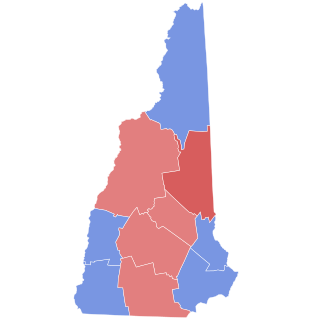
The 1980 United States Senate election in New Hampshire was held on November 4, 1980. Incumbent Democratic U.S. Senator John Durkin was defeated by attorney Warren Rudman in a relatively close election, where nationwide Republicans would have a landslide election known as the Reagan Revolution.
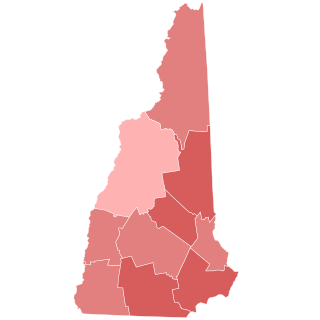
The 2010 United States Senate election in New Hampshire was held on November 2, 2010, alongside other midterm elections to the United States Senate in other states as well as to the United States House of Representatives. Primaries were held on September 14. Incumbent Senator Judd Gregg (R) retired instead of seeking a fourth term, and was succeeded by Kelly Ayotte, who won the open seat by over 23 points.
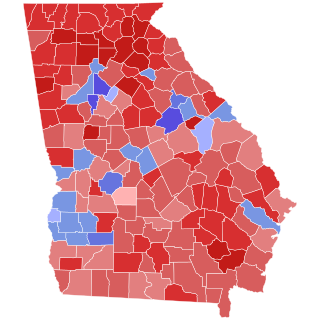
The 2010 United States Senate election in Georgia took place on November 2, 2010. Incumbent Republican U.S. Senator Johnny Isakson won re-election to a second term.
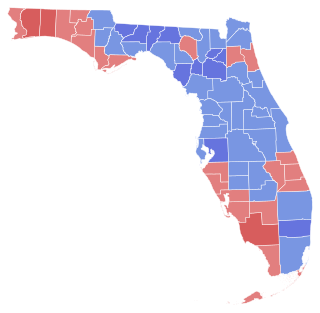
The 1986 United States Senate election in Florida took place on November 4, 1986 alongside other elections to the United States Senate in other states as well as elections to the United States House of Representatives and various state and local elections. Incumbent Republican U.S. Senator Paula Hawkins decided to run for re-election to second term, but was defeated by Democrat Bob Graham, the popular incumbent Governor of Florida. As of 2023, this was the last time an incumbent from Florida's Class 3 Senate seat lost re-election.

The 1994 United States Senate election in Washington was held November 8, 1994. Incumbent Republican U.S. Senator Slade Gorton won re-election to a second consecutive term. As of 2023, this was the last time the Republicans won a U.S. Senate election in Washington and the last time a male candidate won a U.S. Senate election in the state.

The 1992 United States Senate election in New Hampshire was held November 3, 1992. Incumbent Republican U.S. Senator Warren Rudman decided to retire. Republican Judd Gregg won the open seat. It was his most competitive election, as he had previously won in landslides in past elections.

The 1986 United States Senate election in Connecticut took place on November 4, 1986, alongside other elections to the United States Senate and United States House of Representatives. Incumbent Democratic U.S. Senator Chris Dodd won re-election to a second term.
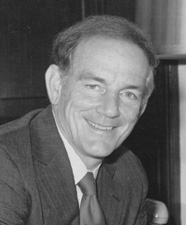
The 1990 United States Senate election in Louisiana was held on October 6, 1990. In a nonpartisan blanket primary, incumbent Democrat J. Bennett Johnston won reelection to a fourth term, avoiding a runoff on November 6, 1990 by receiving 54% of the vote. Former Ku Klux Klan leader David Duke placed second, as the leading Republican challenger.

The 1940 United States Senate election in Vermont took place on November 5, 1940. Incumbent Republican Warren Austin successfully ran for re-election to another term in the United States Senate, defeating Democratic candidate Ona S. Searles. Austin would resign in August 1946 to become United States Ambassador to the United Nations; Ralph Flanders was appointed to replace him and went on to win election to a full term in 1946.

The 1934 United States Senate election in Vermont took place on November 6, 1934. Incumbent Republican Warren Austin successfully ran for re-election to a full term in the United States Senate, defeating Democratic candidate Fred C. Martin. Austin was elected in a 1931 special election to replace Frank C. Partridge, who was appointed to fill the vacancy created by the death of Frank L. Greene. As of 2022, Martin's 48.37% vote share remains the largest a Democrat has ever received for Vermont's Class I Senate seat.
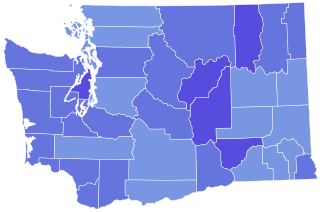
The 1956 United States Senate election in Washington was held on November 6, 1956. Incumbent Democratic U.S. Senator Warren Magnuson won a third term in office, defeating Republican nominee Arthur B. Langlie.

The 1950 United States Senate election in Washington was held on November 7, 1950. Incumbent Democratic U.S. Senator Warren Magnuson won a second term in office, defeating Republican nominee W. Walter Williams.

The 1954 United States Senate special election in California was held on November 2, 1954, to elect a U.S. Senator to complete the unexpired term of Senator Richard Nixon, who resigned on becoming Vice President of the United States following the 1952 presidential election. Incumbent Republican U.S. Senator Thomas Kuchel, who had been appointed by Governor Earl Warren, won election to the remainder of the term, defeating Democratic nominee Sam Yorty.

The 1962 United States Senate election in Washington was held on November 6, 1962. Incumbent Democratic U.S. Senator Warren Magnuson won a fourth term in office, narrowly defeating Republican nominee Richard G. Christensen.

The 1968 United States Senate election in Washington was held on November 5, 1968. Incumbent Democratic U.S. Senator Warren Magnuson won a fifth term in office, defeating Republican State Senator Jack Metcalf.
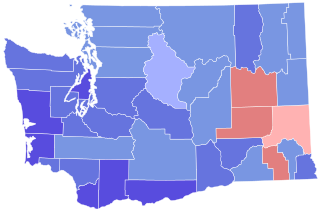
The 1974 United States Senate election in Washington was held on November 5, 1974. Incumbent Democratic U.S. Senator Warren Magnuson won a sixth term in office, defeating Republican state senator Jack Metcalf, in a rematch of the previous election.
The 2024 United States Senate election in Massachusetts will be held on November 5, 2024, to elect a member of the United States Senate to represent the state of Massachusetts. Primary elections will take place on September 17, 2024. Incumbent Senator Elizabeth Warren was first elected in 2012, defeating incumbent Scott Brown (R) and returning Massachusetts to an all-Democratic congressional delegation effective January 3, 2013. Warren was re-elected with 60.3% of the vote in 2018 and is seeking a third term in office.
